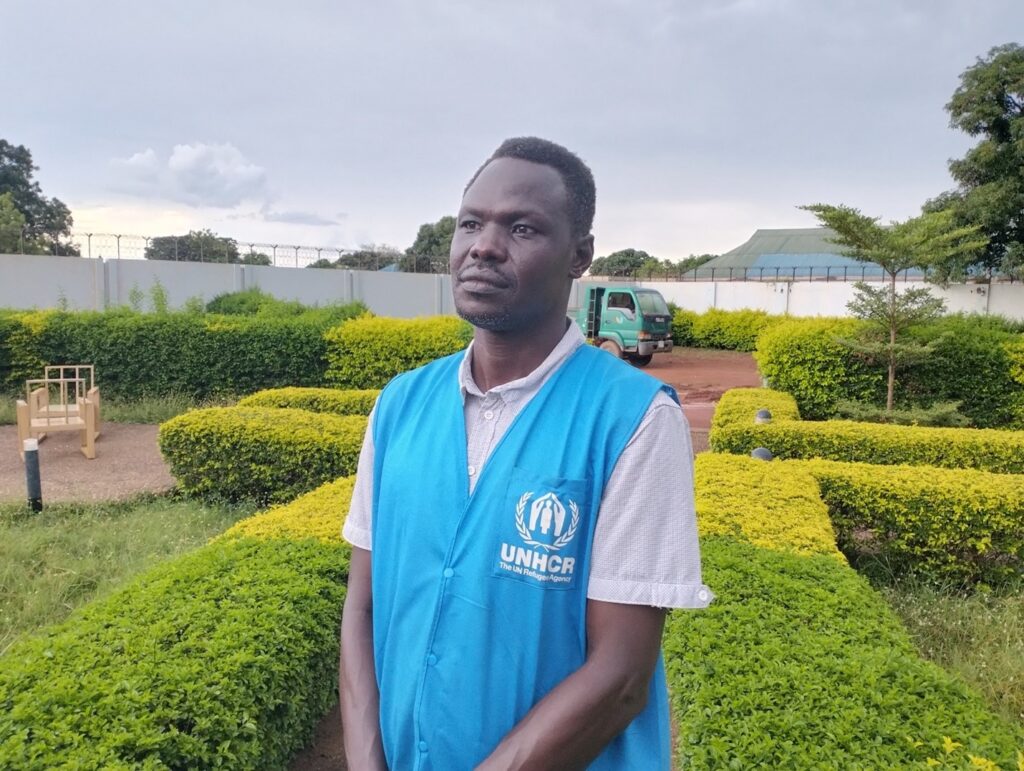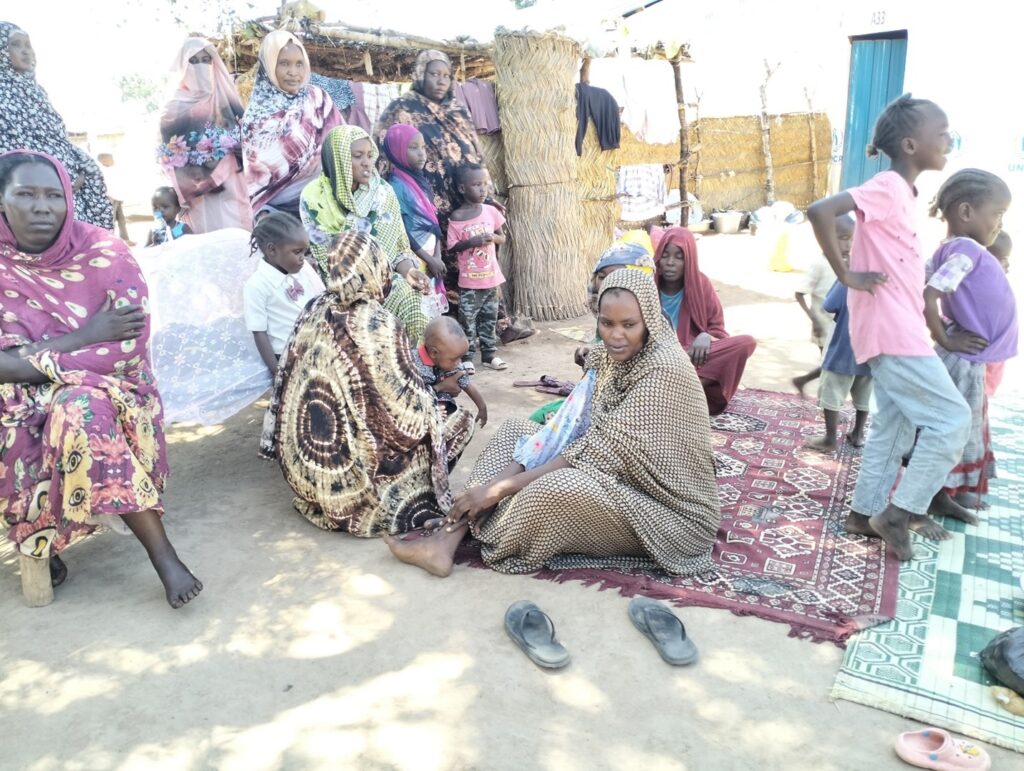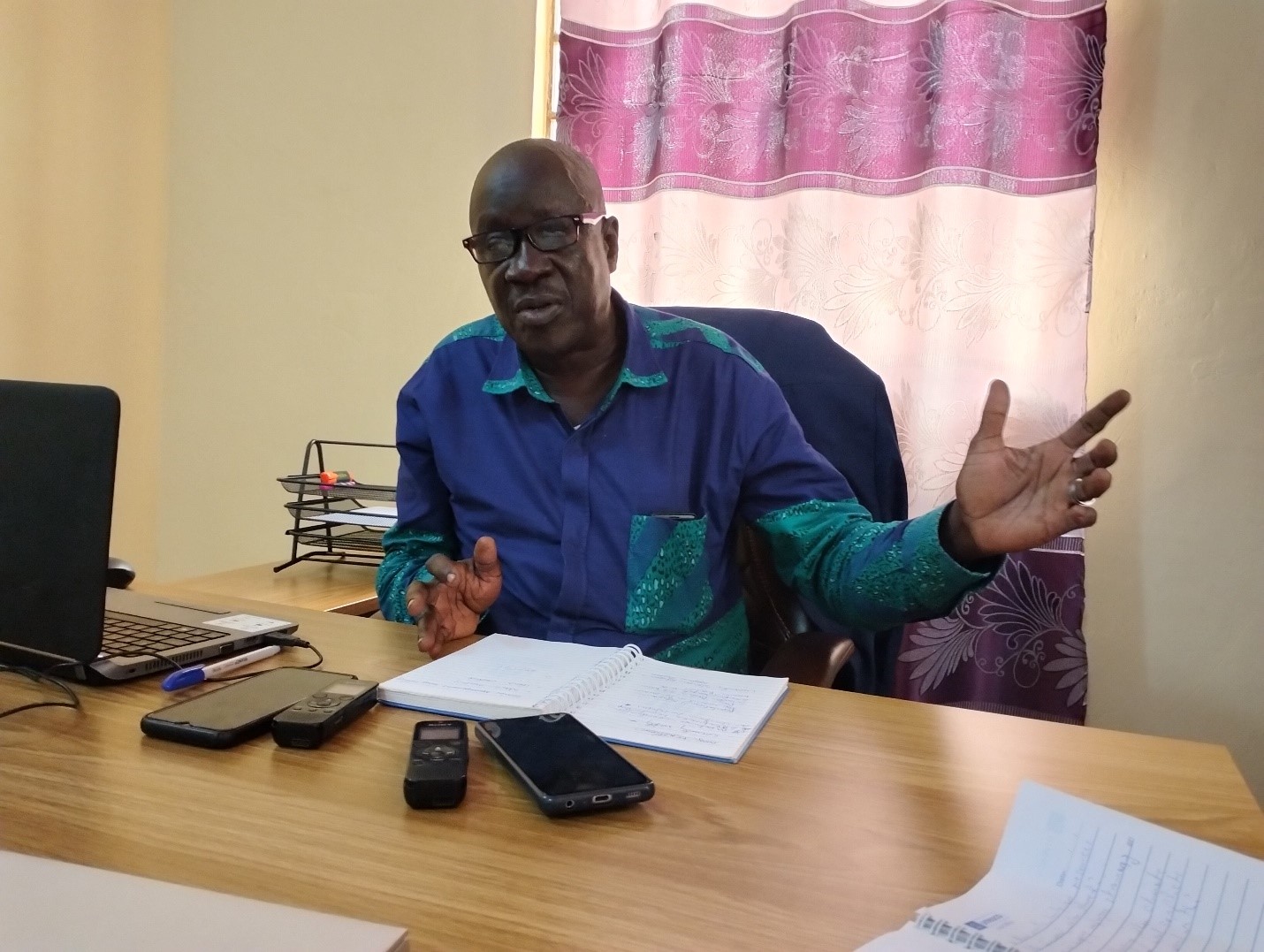South Sudan's English Daily Newspaper
"We Dare where others fear"

By Benjamin Takpiny
The South Sudan government together with the United Nations Higher Commissioner for Refugees (UNHCR) has called upon international donors to urgently provide funding to support refugees in Wadwiel refugee camp in Northern Barh El Ghazal state.
Julius Taban Philip, the Assistant Commissioner for Refugees Affairs from the South Sudan Commission for Refugees Affairs (CRA) deployed from Juba to oversee response to refugees in Northern Bahr el Ghazal state, said the humanitarian situation is worsening day and night for thousands of Sudanese refugees.
“We have accommodated the refugees in Wadwiel refugee settlement but there are still a lot of challenges facing them because of limited funding UNCHR is getting from the donors,” Taban told journalists in Aweil town recently during a visit facilitated by UNHCR.
He disclosed that refugees are disappointed with the support they are getting upon their arrival in South Sudan.
“They excepted to get basic needs such as food, water and medicine, but these are not being given to them fully because of limited resources our partners have,” Taban told the Journalists in Aweil Town.
He revealed that the World Food Programme (WFP) increased food ratio for refugees to 70 percent, adding that this remains insufficient to cater for the increasing daily number of refugee arrivals.
“Most of the people coming are youth, children and women and these are people who eat a lot, they are complaining that food is not enough and these are the people who have not been refugees before. We are talking to WFP to increase their food ratio to 100 percent and also talking to other partners to come in,” Taban said.
He noted that most children are malnourished because they walked long distance to arrive in South Sudan.
Taban also added that they lack ambulance to transport sick refugees to the main hospital in Aweil town.
He revealed that some of the youth returned to Sudan in search of food.
Garang Mawien Athian, a Protection Officer at the United Nations Higher Commissioner for Refugees in Wau and also part of the Sudan response team in Wadwiel refugee settlement, said that they have only secured 41 percent of the total 96 million U.S dollar humanitarian response funding for refugees.
“We are requesting the donor community to give us their helping hand to make us able to respond to this situation and also be able to provide services to the refugees,” Athian said.
“Many of them (refugees) actually came empty-handed, some people also were unable to pick anything from their houses when they were running away from the conflict,” he added.
He said that about 50 to 70 people arrive daily across the border with Sudan.
Mahmud Mohamed Osman, chairperson of Sudanese refugee committee in Wadwiel refugee Camp said that they are facing many difficult challengesdespite the support and hospitality provided by the government to them since May 17.
“There are many diseases and there is no treatment, we get some services but they are not enough. Generally, not everything is available, the government, CRA commission and organizations are standing with us but we still call for more support. Young people have lost education and families have lost everything, people are suffering but they still remain patient,” Osman said.
“We need basic services like food, water, shelter and education; kids have school but lack books and curriculum. we have about 9000 refugees but the population is increasing, about 30 or 40 people are coming every day, it is about 15 people in average because the road is closed and there is no way for people fleeing conflict to cross to South Sudan,” he added.

Zenab Mohamed, a 35- year- old mother 4, said that she is worried for her children since there are no proper health services in the camp.
“We left Khartoum because of war but when we reached in the camp, we found there is no treatment, we have many problems for instance I have Asthma that requires treatment, I was recently referred to Awiel civil hospital. When you are admitted you do not get services, you are released when there is no improvement,” Mohamed said.
She said that health officials in the camp are only serving pregnant mothers and children.
UNHCR organized a two-day media mission to Wadwiel refugee camp in Aweil town of Northern Bahr -El Ghazal State.




